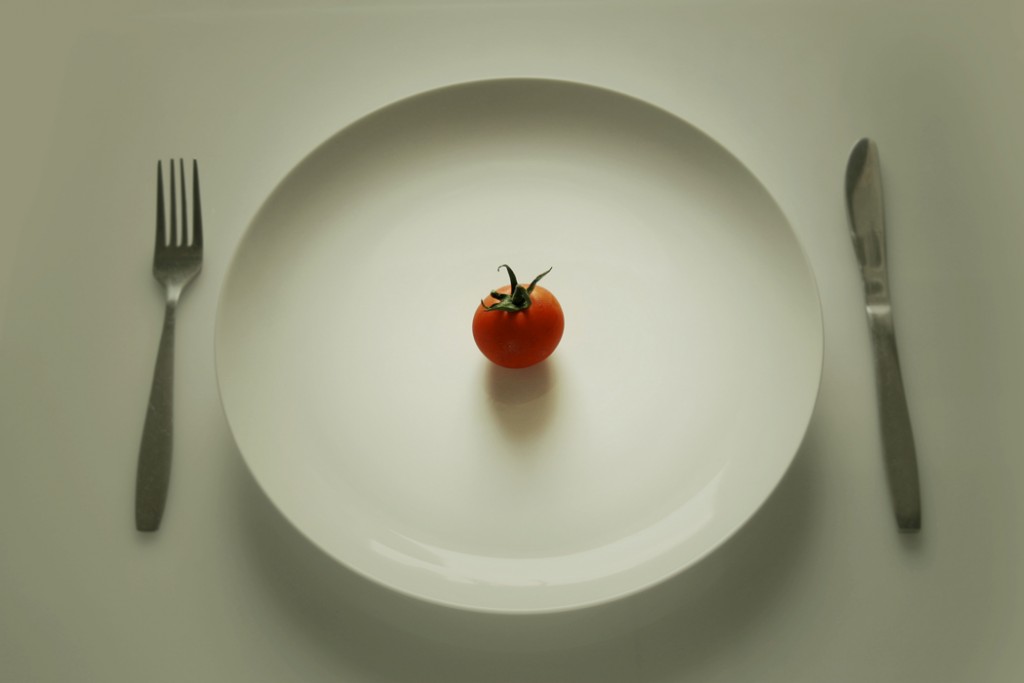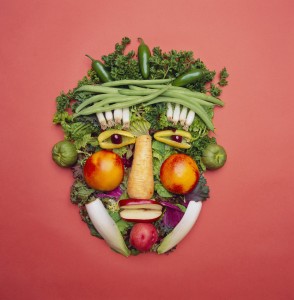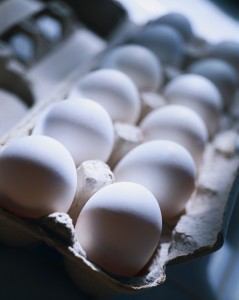 This food stuff is making my brain explode/stressing me out/doing my head in!!!
This food stuff is making my brain explode/stressing me out/doing my head in!!!

Regardless of the words used in the above sentence, I hear this sort of thing all the time. It’s hard to drop your long-cemented habits and completely switch over to a new way of eating, even for me. So today I’m gonna have a go at explaining ‘how to follow a meal plan’ as simple as I can for you.
Carbs are not the enemy! You need to eat carbs. It’s all a matter of timing. Why? Glucose (carbs) are the muscle’s energy source. When glucose gets used up the body starts burning fat for energy. If there’s no glucose given to the muscles for more than 3 or 4 days, the body decides to stop burning fat and save it just in case it doesn’t get any more carbs again. It’s a defence mechanism.
Solution. Eat higher carbs one day and lower carbs for a few days after that. How? On the higher carbs day eat some wholegrain bread, brown rice, porridge, quinoa as well as your protein and vegetables. Eat a little less fat and protein on this day so you’re not eating more food than another day. On the lower carbs days, aim for mostly vegetables and some fruit.
 How much veg? A 500g pack of frozen vegetables contains around 20g of carbohydrates! This is nothing! You could eat the whole bag in a day and it would be great for losing weight, as long as you are eating your protein too. You can eat as much green vegetables as you like except green peas because they contain starch. Fill up on spinach, broccoli, bok choy, green capsicum, spring onion, green leafy veg, etc, as well as some colourful vegetables too.
How much veg? A 500g pack of frozen vegetables contains around 20g of carbohydrates! This is nothing! You could eat the whole bag in a day and it would be great for losing weight, as long as you are eating your protein too. You can eat as much green vegetables as you like except green peas because they contain starch. Fill up on spinach, broccoli, bok choy, green capsicum, spring onion, green leafy veg, etc, as well as some colourful vegetables too.
Not keen on salad? Add Praise extra virgin olive oil with mustard & herbs to blow your mind with flavour! Just not too much. For cooked veggies, gravy is good, white sauce is bad.
How much protein do you need? Aim to eat some protein at each meal. For main meals aim for beef, chicken, kangaroo, turkey, pork, lamb, fish or seafood. A serve of meat is about the size and thickness of your palm and fish is about the size and thickness of your hand. Why protein? Because it helps build/maintain muscle which keeps your metabolism high, and it’s not easily converted into fat.
 Eggs are great at breakfast time especially poached or boiled, but scrambled may be easier for you. Somewhere between 2 and 4 should be enough. There’s no carbs in eggs, just protein and a little fat. If you’re worried about eating too many eggs because of cholesterol, just scoop the yoke(s) out. But that argument is still going and may never really be solved.
Eggs are great at breakfast time especially poached or boiled, but scrambled may be easier for you. Somewhere between 2 and 4 should be enough. There’s no carbs in eggs, just protein and a little fat. If you’re worried about eating too many eggs because of cholesterol, just scoop the yoke(s) out. But that argument is still going and may never really be solved.
For protein snacks you may like almonds, cashews, walnuts or pumpkin & sunflower seeds (no more than a small handful or golf ball sized serve). Cottage cheese (1-2 cups), no-fat Greek yoghurt or Natural Organic Yoghurt (half to 1 cup), eggs or a protein shake (one serve) will work. Try to add some veg to your snacks too.
You should get enough fat from your meat, fish and eggs intake but taking fish oil daily may be good for you too. Same as a multivitamin, as most of our food is pretty deficient in nutrients compared to the olden days.
If you think the food is boring, explore your spice rack. Get creative and flavour meats with salt, pepper, chilli, paprika, garlic and whatever herbs rock your world. If you have to, use sauces, but use them sparingly. Many sauces are high in sugar, so beware!
Hope that clears up some of the confusion and makes your life a little easier. Cook enough for leftovers, use containers and zip-lock bags and plan what you are eating in advance and it all gets easier. If you want supplements, The Vitamin Outlet at Centro Innaloo (opposite IKEA) is about the cheapest place I’ve seen and they’re pretty helpful there too.
Good Luck
Travis Sawyer
Perth Boot Camp Guy and Master Chef